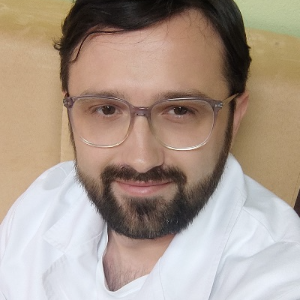Title : Low T3 versus low T3T4 euthyroid sick syndrome in septic shock patients - A prospective observational cohort study
Abstract:
To analyze clinical, hemodynamic and laboratory differences in two groups of septic shock patients with euthyroid sick syndrome (ESS). Methods: A total of 47 septic shock patients with ESS were divided according to values of the thyroid hormones into low T3 and low T3T4 groups. The analysis included clinical data (demographic data, mortality scores, Intensive Care Unit (ICU) stay, mechanical ventilation (MV) length and 28-day survival) and laboratory with hemodynamics. Laboratory data were analyzed on the day of admission (T0), on the first (T1) and on the third (T2) day with hemodynamics analyzed for the first four days every hour. Results: The Simplified Acute Physiology Score (SAPS) II score (p=0.029), dobutamine (p=0.003) and epinephrine requirement (p=0.000) and the incidence of renal failure and multiple organ failure (MOF) (p=0.000) were significantly higher for the low T3T4. Hypoalbuminemia (p=0.047), neutrophilia (p=0.038), lymphopenia (p=0.013) and lactatemia (p=0.013) were more pronounced on T2 for the Low T3T4 group compared to the Low T3 group. Diastolic blood pressure (DBP) at T0 (p = 0.017) and T1 (p=0.007), as well as mean arterial pressure (MAP) at T0 (p=0.037) and T2 (p=0.033) was higher for the Low T3 group compared with the Low T3T4 group. Conclusion: Low T3T4 population is associated with higher frequency of renal insufficiency and MOF, with worse laboratory and hemodynamic parameters. These findings suggest potentially maladaptive changes in the chronic phase of septic shock, i.e. the low T3T4 phase and a possible indication for therapeutic supplementation.
Audience Take Away Notes:
Septic shock as one of the biggest causes of mortality in the intensive care unit requires a multidisciplinary approach to treatment. Euthyroid sick syndrome is common in septic patients and there are still doubts as to whether it should be treated. This study showed that chronic or prolonged phase of septic shock is associated with worse laboratory parameters and hemodynamics, and that it is associated with a higher frequency of renal insufficiency and multiple organ failure. The study represents a novelty in septic shock patients and it is the first to analyze differences between acute (Low T3) and chronic/prolonged (Low T3T4) phase of septic shock.



